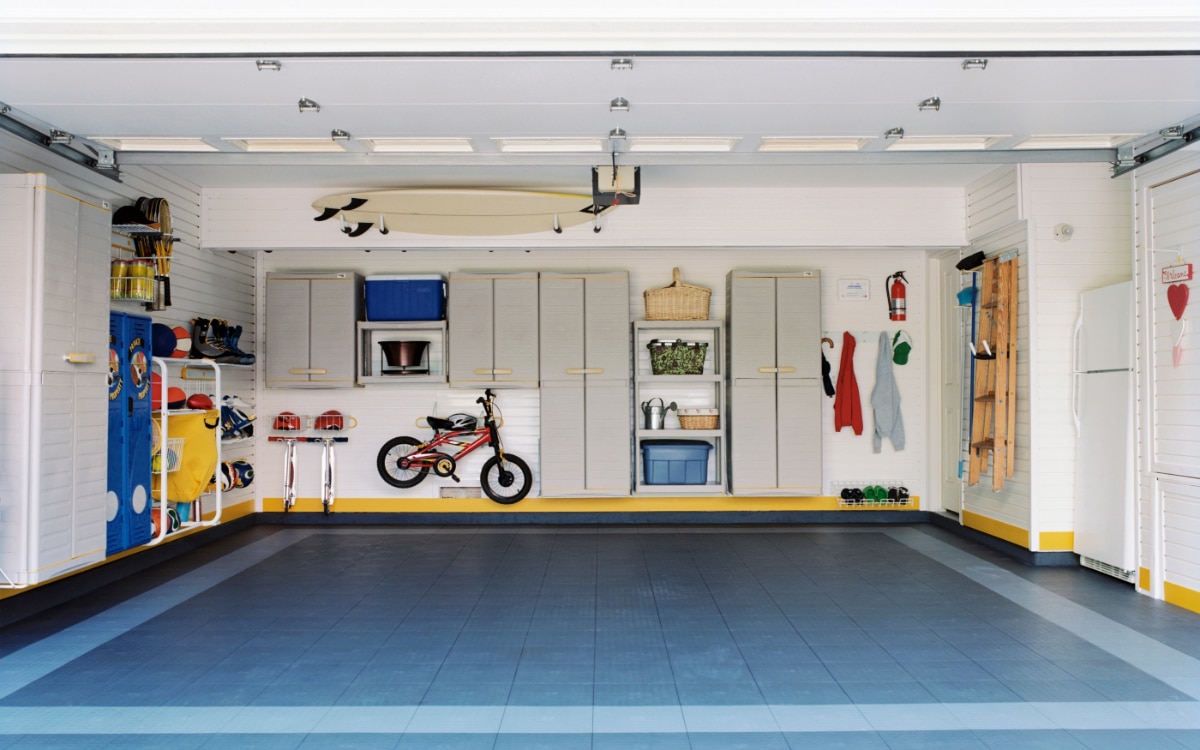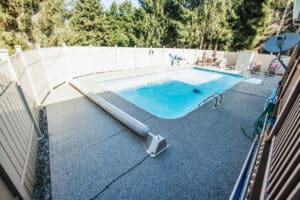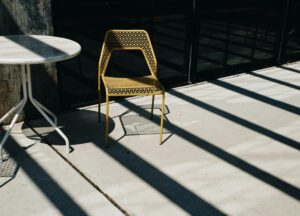Concrete floors are incredibly common in garages, basements, patios, and commercial buildings. However, concrete tends to degrade and even crack over time as it is exposed to moisture, pressure, temperature changes, and foot traffic. Traditionally, property owners have used sealants—often made from acrylic materials—to protect their floors. However, these sealants wear down quickly, forcing owners to apply layer after layer, year after year.
Polyaspartic floor coatings are a modern alternative that offers superior performance compared to traditional concrete sealants, including a glossy finish that enhances both the aesthetic appeal and durability of the flooring. In this article, we’ll explore in detail how they compare in terms of longevity, maintenance, and cost.
Comparing Polyaspartic Coatings to Traditional Concrete Sealants
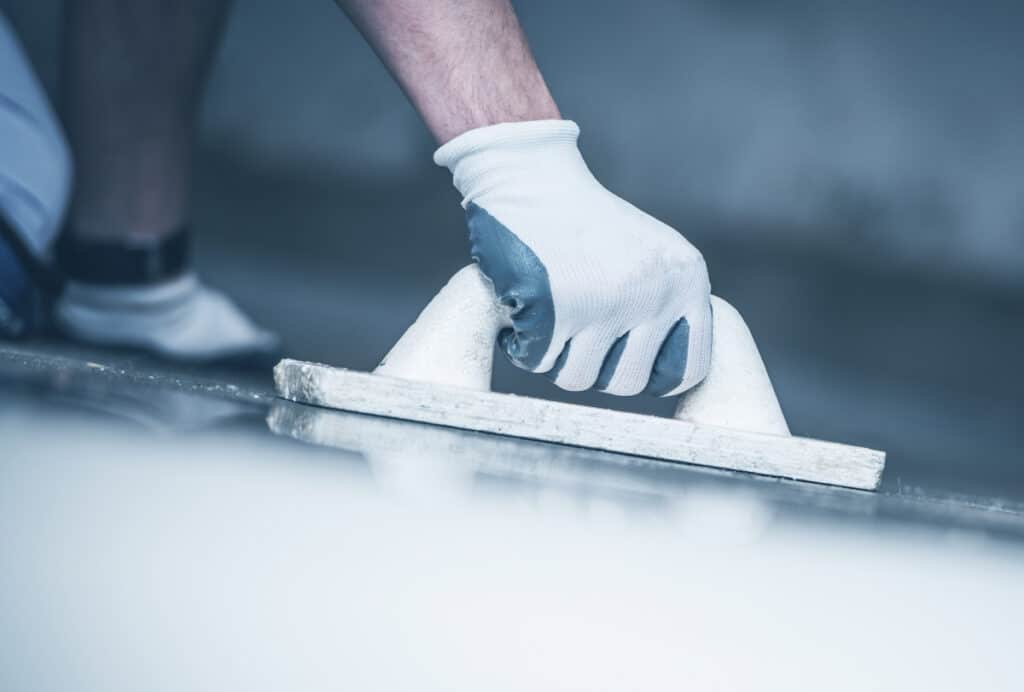
While concrete sealants are historically the go-to solution protecting concrete surfaces, they often fall short in terms of longevity and performance. Polyaspartic coatings, on the other hand, are designed to withstand significant wear and tear, making them an ideal choice for high-traffic areas and even commercial floors.
Polyaspartic coatings do have a higher upfront price than concrete sealants. This initial expense might deter some, but considering their extended lifespan and lower maintenance requirements, polyaspartic coatings frequently prove to be the more economical option over time.
Durability and Longevity
Polyaspartic floor coatings are renowned for their impressive lifespan, often lasting for a decade or more with proper installation and maintenance. In fact, with the right care, these coatings can extend well beyond 20 years, making them a long-term investment for any concrete surface. Unlike traditional sealants that wear off unevenly and require frequent reapplications, polyaspartic coatings provide consistent protection across the entire surface.
Polyaspartic’s significant resistance to chipping, scratching, and scuffing contributes to its durability. Polyaspartic coatings are engineered to endure harsh conditions like chemical exposure, UV rays, and extreme temperatures, making them suitable for both indoor and outdoor spaces such as garages, walkways, and patios. Additionally, polyaspartic coatings effectively resist hot tire pickup from car traffic in garages, unlike traditional concrete sealants. This durability ensures floors remain in excellent condition, even under heavy use.
Maintenance Requirements
Polyaspartic flooring is remarkably easy to maintain compared to traditional coatings. These coatings do not demand extensive cleaning or frequent reapplications, significantly reducing the maintenance burden.
Periodic cleaning is usually enough to keep polyaspartic floors looking their best, making them a convenient option for busy homeowners and business owners!
Concrete sealants, on the other hand, can require annual or every-few-years reapplication, especially in high-traffic areas like garages and commercial floors. This can be time-consuming and costly, not to mention the inconvenience of clearing the area for each application. Polyaspartic coatings eliminate this hassle, offering a maintenance-free solution that preserves its integrity and appearance over long periods.
Their resistance to chemical spills, staining, and mildew further enhances the ease of maintaining polyaspartic coatings. This makes them ideal for environments prone to such issues, ensuring floors remain safe and visually appealing with minimal effort.
Cost Analysis
Although the initial cost of polyaspartic floor coatings is higher, typically ranging from $6 to $9 per square foot, this investment pays off over time. Their durability and minimal maintenance requirements result in significant long-term savings. Unlike concrete sealants that need frequent reapplications, polyaspartic coatings remain intact and effective for years, reducing ongoing expenses.
Moreover, the cost of repeated sealant applications can quickly add up, making polyaspartic coatings a more cost-effective solution over time. Opting for polyaspartic coatings helps avoid recurring costs and provides a durable, low-maintenance flooring solution that stands the test of time.
Addressing Common Concerns
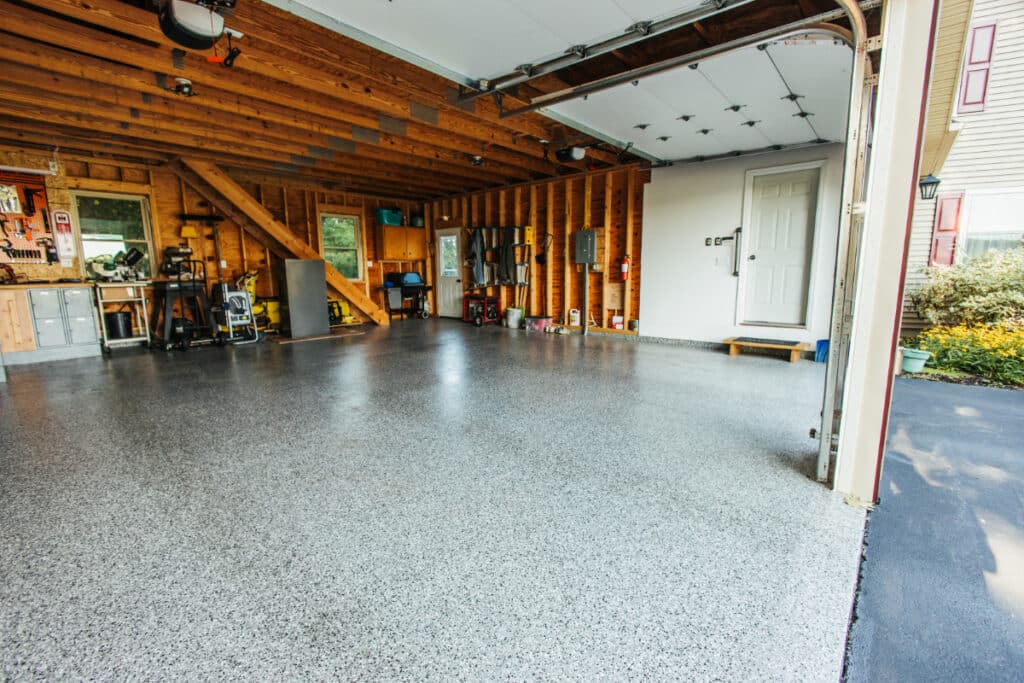
Polyaspartic floor coatings have a higher initial cost compared to traditional concrete sealants, primarily due to the advanced technology and materials used in their formulation, for superior performance and durability. Although this upfront investment might seem daunting, considering the long-term benefits is essential.
The durability and reduced maintenance needs of polyaspartic coatings can result in significant savings over time. Unlike concrete sealants that require frequent reapplications, polyaspartic coatings remain effective for years, minimizing ongoing maintenance and associated costs. This makes them a more economical choice in the long run, especially for high-traffic and commercial areas.
Ultimately, the enhanced performance and longevity of polyaspartic coatings justify the higher upfront cost as a worthwhile investment. Choosing polyaspartic coatings provides a durable, low-maintenance flooring solution that offers excellent value for money over time.
Everlast Concrete Coatings: A Trusted Provider of Modern Sealants for Concrete Surfaces
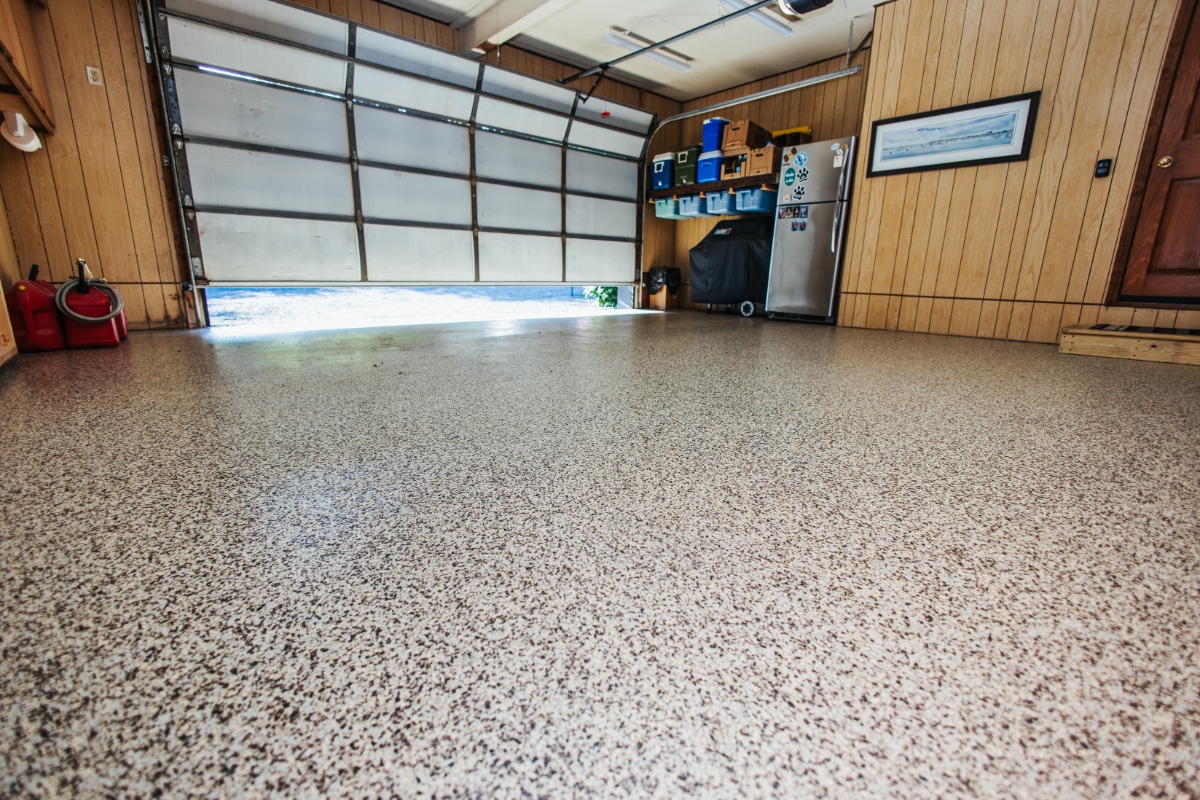
Everlast Concrete Coatings, based in the Finger Lakes region of New York, has established a reputation for excellence in providing quality concrete floor coatings. Specializing in polyaspartic floor coatings, we’ve become a trusted provider for both residential and commercial projects. Our professional service and high-quality products have made us a preferred choice for those looking to enhance and protect concrete surfaces of all kinds.
We offer a comprehensive 15-year warranty on polyaspartic coating installations, for peace of mind knowing that your investment is protected.
For Upstate New York residents wanting to protect and beautify your concrete surfaces for decades, Everlast Concrete Coatings offers an industry-leading option. Give us a call today for a free quote.
Summary
Polyaspartic floor coatings offer several advantages over traditional concrete sealants, including superior durability, minimal maintenance, cost-effectiveness, and excellent resistance to UV damage, scratches, and stains. These benefits make them an ideal choice for both residential and commercial applications, providing long-term value and performance.
Considering the long-term savings and reduced maintenance needs, polyaspartic coatings are a wise investment for anyone looking to enhance and protect their concrete surfaces. By choosing a trusted provider like Everlast Concrete Coatings, you can ensure a high-quality installation and enjoy the benefits of a durable, low-maintenance flooring solution for years to come.
Frequently Asked Questions
How much does a polyaspartic concrete coating cost?
The cost of a polyaspartic concrete coating depends on the square footage of the flooring and the prep work required. Give us a call for a free quote.
What do you do before applying the coating?
For brand new or extremely clean concrete, very little prep is needed before we start applying the sealer.
For older, dirty, or damaged floors, we clean and grind them flat and smooth with diamond grind prep before application. This can be the case with pitting, cracks, or erosion of the surface. Believe me,
How long will a polyaspartic installation take?
Most of our concrete coatings are installed in one day and can be walked on the following day. This depends on the prep work required, and the size and accessibility of the floor.
Where do you install concrete coatings?
Based in Penn Yan, Everlast serves the entire Finger Lakes area, including Corning, Rochester, Geneva, Watkin’s Glen, Syracuse, and everywhere in between.

